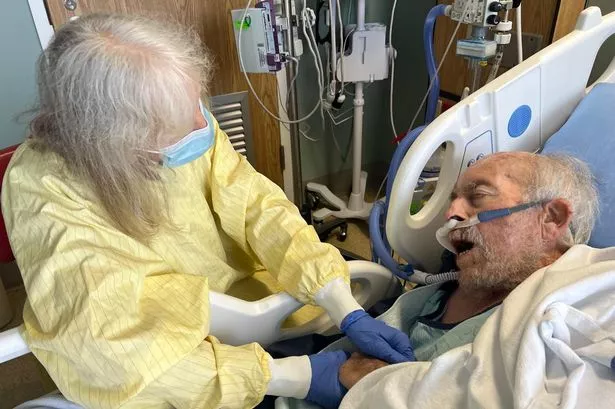Alan Foster, a 77-year-old retiree, embarked on what was supposed to be a leisurely month-long cruise, a culmination of years of dreaming and meticulous planning. He envisioned sun-drenched days on the open deck, exploring exotic ports, and savoring gourmet meals. Instead, this dream vacation tragically transformed into a nightmare when he was suddenly stricken with severe stomach cramps and persistent vomiting. What began as a seemingly innocuous ailment quickly escalated, ultimately leading to acute kidney failure and his untimely death onboard the ship, far from home and the comfort of loved ones. The abrupt shift from anticipated pleasure to agonizing illness and the finality of death cast a somber pall over the cruise, leaving fellow passengers and crew members shaken and saddened by the unexpected loss.
The initial onset of Mr. Foster’s illness was characterized by sharp, debilitating stomach cramps that doubled him over in pain. These were swiftly followed by bouts of relentless vomiting, leaving him weak and dehydrated. The ship’s medical staff provided immediate attention, administering medications to alleviate his symptoms and attempting to rehydrate him intravenously. However, his condition continued to deteriorate despite their efforts. The precise cause of his initial gastrointestinal distress remains unclear, with possibilities ranging from a virulent strain of norovirus, a common culprit on cruise ships, to food poisoning from a contaminated meal. The rapid progression of his illness underscored the seriousness of the underlying condition and the challenges of providing comprehensive medical care in the confined environment of a ship at sea.
As Mr. Foster’s condition worsened, the ship’s medical team recognized the developing signs of kidney failure. His urine output decreased dramatically, a clear indication that his kidneys were struggling to filter waste products from his blood. This decline in kidney function led to a build-up of toxins in his body, further exacerbating his already precarious state. The medical team consulted with specialists onshore via satellite communication, seeking guidance on the best course of action in this critical situation. However, the limitations of the ship’s medical facilities and the distance from advanced medical care hampered their ability to effectively treat his rapidly deteriorating condition. The gravity of the situation became increasingly apparent as Mr. Foster’s vital signs began to falter.
The ship’s medical team implemented emergency measures to stabilize Mr. Foster, including dialysis to artificially remove waste products from his blood and medications to support his failing organs. Despite their tireless efforts, his body was unable to withstand the onslaught of the illness. His condition continued to decline, and he slipped into a coma. The medical team, along with the ship’s captain, made the difficult decision to divert the ship towards the nearest port with adequate medical facilities, hoping to reach land in time to provide Mr. Foster with the advanced life support he desperately needed. However, the relentless progression of his illness outpaced their efforts, and tragically, Mr. Foster passed away before the ship could reach port.
The news of Mr. Foster’s death reverberated throughout the ship, casting a somber shadow over the remaining days of the cruise. Fellow passengers, who had embarked on the journey with high spirits and anticipation, were deeply affected by the sudden and unexpected loss. Many expressed shock and disbelief, grappling with the stark reminder of the fragility of life. The ship’s crew, who had witnessed Mr. Foster’s decline and had worked tirelessly to save him, were also profoundly saddened by his passing. The cruise, once a symbol of leisure and escape, became a poignant reminder of the unpredictable nature of life and the importance of cherishing every moment.
The circumstances surrounding Mr. Foster’s death underscore the inherent risks associated with travel, particularly for older individuals with pre-existing health conditions. While cruise ships are equipped to handle a range of medical emergencies, their resources are limited compared to land-based hospitals. The distance from advanced medical care can be a critical factor in situations requiring specialized treatment. This tragic event serves as a stark reminder of the importance of thorough pre-travel health assessments and consultations with physicians to discuss potential risks and necessary precautions. It also highlights the need for travelers to be aware of the limitations of medical facilities on cruise ships and to consider purchasing travel insurance that includes medical evacuation coverage in case of serious illness or injury. The case of Alan Foster serves as a cautionary tale, reminding us that even in the midst of anticipated joy and relaxation, unforeseen circumstances can dramatically alter the course of our lives.














